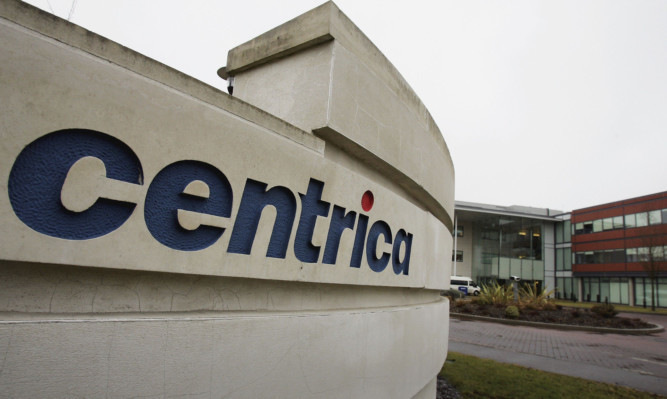
British Gas owner Centrica has clobbered shareholders with an “urgent” dividend cut to shore up its finances as profits fell by more than a third.
Shares plunged by as much as 9% – wiping more than £1 billion off the value of the FTSE 100 giant – as the “painful” payout announcement hit the group’s army of 650,000 small investors.
New boss Iain Conn said costs and investment would also be slashed, sounding a warning over the challenge of keeping the lights on in the UK – and the need to explore shale gas alternatives – as the firm said it planned to close two power stations.
He also defended profit levels at British Gas which he said earned £42 a year per household – around £10 less than the year before – or about 80p per week.
Mr Conn added that a further cut to gas tariffs this year after a recently-announced 5% cut, amid low wholesale market prices, was “absolutely feasible” but depended on a number of factors, while admitting the annual exodus of hundreds of thousands of customers was unsustainable.
Residential supply operating profits for 2014 fell 23% to £439 million amid a half-million fall in customer accounts and a £100 decline in average bills over 2014 as gas consumption dropped by a fifth amid warmer weather.
The wider group saw adjusted operating profits fall 35% to £1.75 billion as it was also hit by extreme weather patterns in its North America business and plunging oil and gas prices hit its power generation.
Centrica slumped to a £1.4 billion pre-tax loss on a statutory basis as it booked £1.94 billion in pre-tax write-offs including asset valuations hit by the tumbling wholesale energy market, including North Sea projects and power stations.
Mr Conn said: “2014 was a very difficult year for Centrica and the recent fall in oil and gas prices creates further challenge.
“We are cutting investment and costs in response. It certainly wasn’t the year that we planned for. We had impacts across the board on all of our businesses.”
British Gas lost 368,000 customer accounts over 2014 and also calculated it had 110,000 less than it thought in the first place.
It ended the year with 14.8 million.
Mr Conn indicated that British Gas must find ways of competing better as he admitted that an average loss of a quarter of a million a year was unsustainable.
“I don’t think one can carry on doing that forever,” he said.
The supplier, along with other Big Six firms, is facing a full-scale probe into the sector by the Competition and Markets Authority (CMA) which has already found they have been overcharging loyal customers up to £234 a year.
Mr Conn said the threat of Government intervention – with Labour pledging a price freeze until 2017 if it wins the election – created uncertainty, hampering firms’ plans in the sector but said he was prepared to work with “whoever gets into Number Ten”.
The chief executive also argued that for British Gas profits of 80p a week it had to take “considerable” risk on variable factors such as the weather, arguing: “I don’t think that 4% post-tax margins are outrageous.”
But he added that if wholesale prices remained low it should be able to consider passing lower costs on to customers.
The former BP executive added that it was likely to be a couple of years “before the market materially tightens”.
The chief executive said capital spending in its exploration and production arm would fall to £800 million this year and £650 million the next, around 40% lower than 2014 levels.
He launched a strategic review of the group due to report in July.
Centrica had taken the “difficult decision” to rebase the dividend by 30%, starting with the final pay-out for 2014, giving a full-year dividend down 21% at 13.5p.
Mr Conn admitted it would be “painful” for shareholders but said the need to cut the pay-out had been “quite urgent”, with dividends stable or going up as profits fell, hitting the group’s credit rating.
“We were not able to balance cash going out with the cash going in,” he said.
Mr Conn said no job cuts were being planned for now as a result of Centrica’s cut-backs except for the closures of the Killingholme and Brigg power stations, both in Lincolnshire.
He warned of the knock-on effects of a capacity auction held last December resulting in a lower than expected subsidy level being paid by the Government to energy companies to keep open power stations.
Mr Conn said while this was seen as good news for taxpayers it could have unwelcome consequences for capacity as the UK struggles to keep the lights on.
“It may not be enough to keep projects going on enough plant to get through the winters with enough spare capacity.”
Mr Conn added that “everyone in Britain should at least want to know” whether there was a viable future in extracting domestic shale gas, signalling Centrica’s continued support for fracking through its 25% stake in Cuadrilla.
“In a nation that is increasingly short of natural gas, it’s got to make sense”, he said.
Keith Bowman, equity analyst at Hargreaves Lansdown stockbrokers said: “Centrica has been hit on all fronts.
“Lower consumption as a result of warm UK weather and falling energy prices have impacted on its British Gas supply business, whilst the drop in oil and gas prices is bad news for its expanded exploration division.
“Centrica has for some time been walking a tightrope of issues between government, customers and shareholders, with shareholders today the clear losers.”

Enjoy the convenience of having The Sunday Post delivered as a digital ePaper straight to your smartphone, tablet or computer.
Subscribe for only £5.49 a month and enjoy all the benefits of the printed paper as a digital replica.
Subscribe